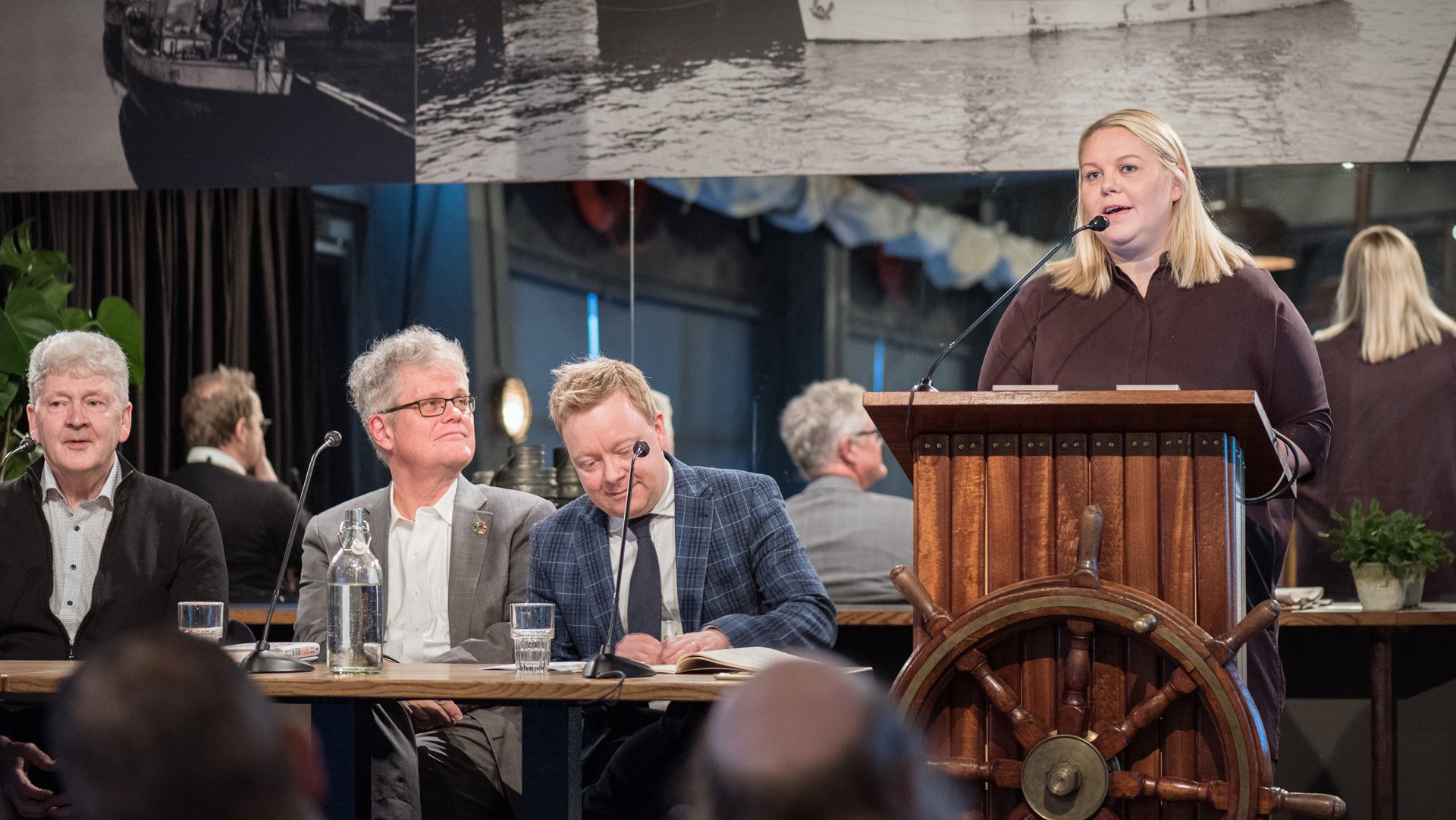We commit to publish non-financial information on environmental issues, social aspects and corporate governance, taking into account internationally recognised criteria.
Non-financial information from fisheries companies
Companies that have signed the fisheries sector social responsibility policy will publish their non-financial information on environmental issues, social aspects and corporate governance. CSR reports or non-financial information from signatories relating to the aspects covered by the policy will be linked to here below.
Public information on the fisheries sector
Fiskistofa (The Directorate of Fisheries)
The website of Fiskistofa contains information on aspects such as harvesting rights, catches and quota status, fishing restrictions, fishing fees, catch weighing, fisheries management, fishing areas, export reports, fishing certificates and production permits.
Fisheries Iceland environmental report
Fisheries Iceland (SFS) issued an environmental report in 2024. This report highlights our continued progress in environmental issues. It showcases the innovations and advancements that have solidified Iceland's position as a global leader in sustainable seafood.
Marine Research Institute
The website of the Marine Research Institute provides information on marine research and fisheries advice.
Radarinn
Radarinn.is is the fisheries industry’s dashboard and contains statistics and information on the Icelandic fishing industry and fish farming.
Pathways for Decarbonization of the Icelandic Maritime Sector
The main aim of this report by DNV is to provide the most likely scenarios for the decarbonization of the Icelandic fleet and describe the fleet and energy mix in 2030, 2040 and 2050 under these scenarios. The project addresses technology replacement and considers the effects of potential policy measures on the decarbonization pathways.
Iceland Responsible Fisheries certification
The main purpose of Iceland Responsible Fisheries certification is to preserve the fisheries management principles adopted by the international community, document well-managed Icelandic fisheries to the highest level of assurance, and promote community consensus behind good discipline in fisheries management.

Maintaining healthy fish stocks and ensuring that information on fishing and the treatment of marine ecosystems is reliable, traceable and transparent is of great economic and social importance for the Icelandic nation.














